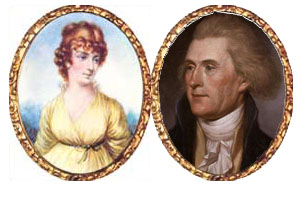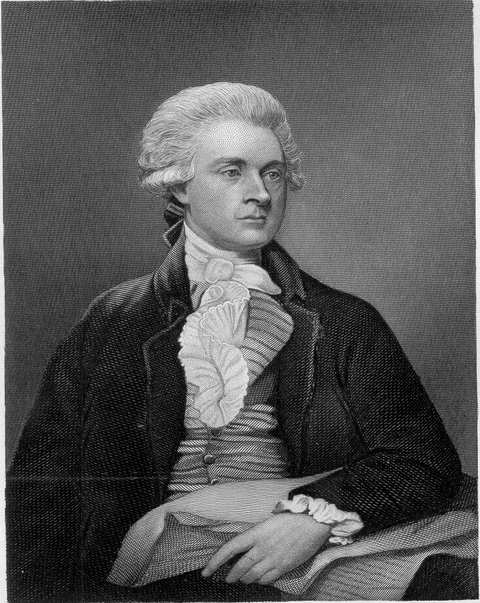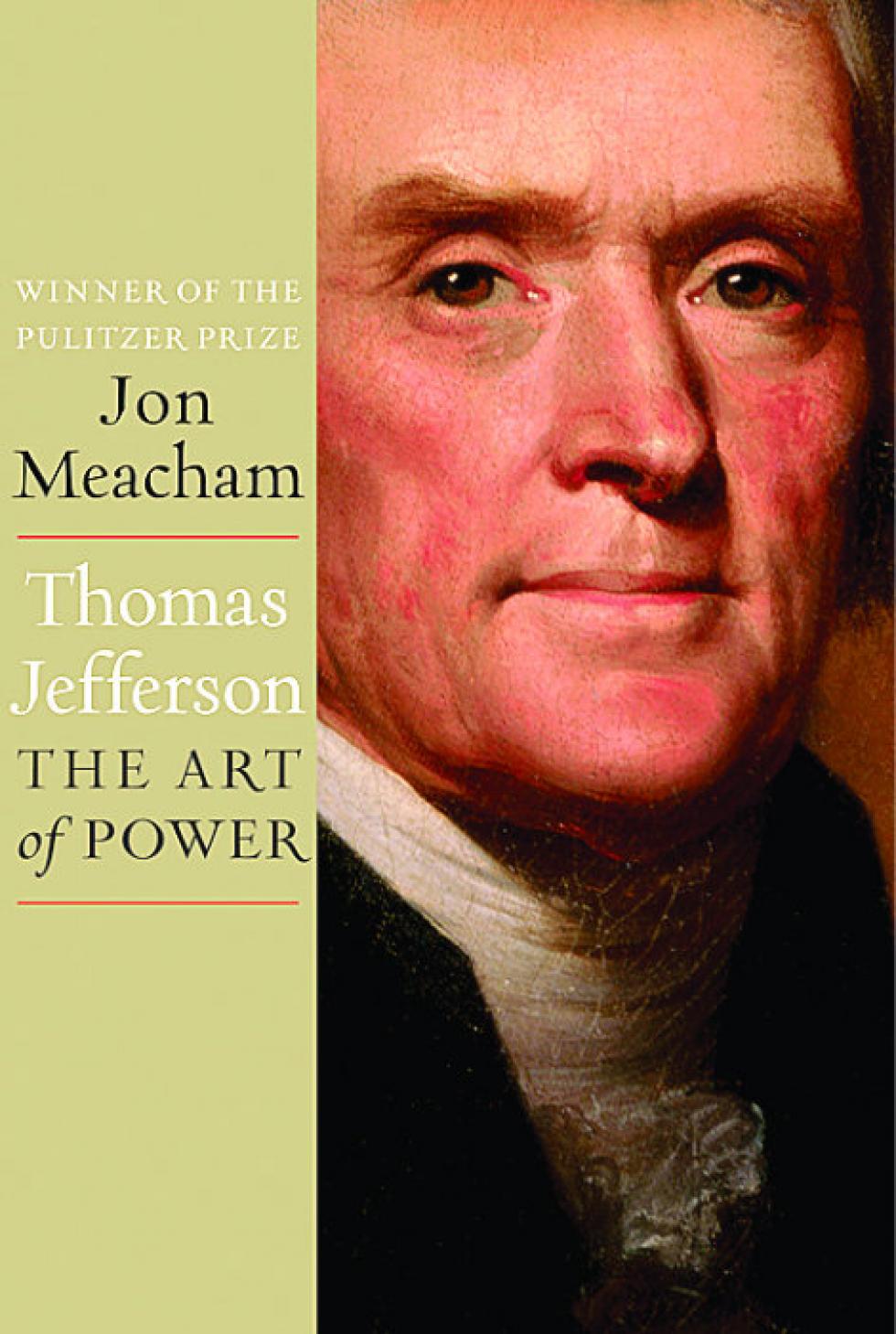“When we reflect how difficult it is to move or inflect the great machine of society, how impossible to advance the notions of a whole people suddenly to ideal right, we see the wisdom of Solon’s remark that no more good must be attempted than the nation can bear.”
Thomas Jefferson on Political Disagreements
“Every difference of opinion is not a difference of principle.”
Thomas Jefferson on the Importance of Newspapers
As we watch the newspaper industry die around us, we should reflect on just how important newspapers have been for American democracy. Thomas Jefferson certainly understood this.
“The basis of our governments being the opinion of the people, the very first object should be to keep that right; and were it left to me to decide whether we should have a government without newspapers, or newspapers without a government, I should not hesitate a moment to prefer the latter. But I should mean that every man should receive those papers and be capable of reading them.”
On Why Thomas Jefferson Never Committed Suicide
 Upon the death of his wife, Thomas Jefferson went into a deep depression. In crushing words, he described his state of mind to his sister-in-law, in a sentence that could be placed in psychiatric manuals next to a definition of depression:
Upon the death of his wife, Thomas Jefferson went into a deep depression. In crushing words, he described his state of mind to his sister-in-law, in a sentence that could be placed in psychiatric manuals next to a definition of depression:
“All my plans of comfort and happiness reversed by a single event and nothing answering in prospect before me but a gloom unbrightened with one cheerful expectation.”
Nothing to look forward to. No hope for the future. And yet Jefferson would not consider ending his life. He had things to do:
“This miserable kind of existence is really too burdensome to be borne, and were it not for the infidelity of deserting the sacred charge left me, I could not wish its continuance a moment.”
That sacred charge? He had children to raise. Thank God!
Thomas Jefferson, On Being Afraid of Girls
 In his youth, Jefferson didn’t lack for confidence except, it seems, when smitten by an attractive girl. One night at a dance, he worked up a bunch of things he could say to a girl named Rebecca who he was hoping to become acquainted with: “I was prepared to say a great deal: I had dressed up in my own mind such thoughts as occurred to me, in as moving language as I knew how, and expected to have performed in a tolerably creditable manner.” Let’s face it: if anyone could impress a girl with eloquence, it would have been Jefferson. But things didn’t go so well, and here’s how Jefferson described that in a letter he wrote the next day:
In his youth, Jefferson didn’t lack for confidence except, it seems, when smitten by an attractive girl. One night at a dance, he worked up a bunch of things he could say to a girl named Rebecca who he was hoping to become acquainted with: “I was prepared to say a great deal: I had dressed up in my own mind such thoughts as occurred to me, in as moving language as I knew how, and expected to have performed in a tolerably creditable manner.” Let’s face it: if anyone could impress a girl with eloquence, it would have been Jefferson. But things didn’t go so well, and here’s how Jefferson described that in a letter he wrote the next day:
“But, good God! When I had an opportunity of venting them [the words he had prepared], a few broken sentences, uttered in great disorder, and interrupted with pauses of uncommon length, were the two visible signs of my strange confusion!”
(Click here to view comments)
Great Writing, But Not by the Author of the New Thomas Jefferson Biography
 Jon Meacham’s best-selling biography, Thomas Jefferson: The Art of Power, is at best a solid read, presenting the basic facts of Jefferson’s life competently but with little grace and an almost invisible point of view. Perhaps I have been spoiled by Robert Caro’s amazing series of books on Lyndon Johnson, four volumes so far that not only make Johnson come to life (his ruthless genius as well as his fascinating contradictions) but also illuminate a whole era in U.S. history, all the while enveloping readers in gloriously rhythmic paragraphs. It is not fair, perhaps, to compare any biographer to Caro. Meacham’s book, after all, is just a single volume, so it cannot explore Jefferson in the same depth that Caro portrays Johnson. Meacham also had the disadvantage of writing about a man who lived a couple hundred years ago, whereas Caro could interview people who knew the subject of his biography firsthand. In addition, Meacham is a busy man, running a publishing company and appearing on television shows, whereas Caro lives the life of an obsessive, dedicating the better part of his adult life to understanding the ins and outs of Johnson’s life.
Jon Meacham’s best-selling biography, Thomas Jefferson: The Art of Power, is at best a solid read, presenting the basic facts of Jefferson’s life competently but with little grace and an almost invisible point of view. Perhaps I have been spoiled by Robert Caro’s amazing series of books on Lyndon Johnson, four volumes so far that not only make Johnson come to life (his ruthless genius as well as his fascinating contradictions) but also illuminate a whole era in U.S. history, all the while enveloping readers in gloriously rhythmic paragraphs. It is not fair, perhaps, to compare any biographer to Caro. Meacham’s book, after all, is just a single volume, so it cannot explore Jefferson in the same depth that Caro portrays Johnson. Meacham also had the disadvantage of writing about a man who lived a couple hundred years ago, whereas Caro could interview people who knew the subject of his biography firsthand. In addition, Meacham is a busy man, running a publishing company and appearing on television shows, whereas Caro lives the life of an obsessive, dedicating the better part of his adult life to understanding the ins and outs of Johnson’s life.
Nevertheless, if you are going to write a book about an American president and subtitle it “The Art of Power,” you better expect some Caro comparisons.
As it turns out, however, being compared to Caro is the least of Meacham’s writerly problems. Because there is another great writer that readers won’t be able to ignore when making their way through Meacham’s book. That writer, of course, is Thomas Jefferson.
I’m going to give you a sprinkling of Jefferson’s prose in a bit, and follow-up later this week with several other great Jefferson quotes. But first, a little bit more on Meacham’s book. I was really disappointed, because in Meacham’s hands, Jefferson rarely comes alive on the page. Time passes by and suddenly the reader realizes: “Jefferson just became governor of Virginia? Was that something he was trying to accomplish? Which of the arts of power did he employ to reach that position?” Meacham never provides answers to these kinds of questions.
For the most part, Meacham isn’t a bad writer as much as he is just not a good one. But there are some awkward attempts to be colorful that capture part of my problems with this book. For instance, Meacham describes Jefferson’s friend George Wyth as “hawk-nosed” both in the text, as basically the second thing readers learn about Wyth (the importance of said nose being…?) and in the caption accompanying Wyth’s portrait.
A portrait painted in profile. In case readers would otherwise have missed out on this crucial aspect of Wyth’s character.
Meacham is similarly awkward in describing a distant relative of Jefferson’s, Thomas Randolph: “ambitious, well educated, and black-haired, young Randolph had…”
Black-haired? That’s the fact we needed at that moment in time, in that position of the sentence? Strange indeed.
Fortunately, Meacham’s book is sprinkled with Jefferson’s writing. For instance, when discussing whether the newly established United States was so politically and socially unstable that it would disintegrate, Jefferson argued that the American people would fight to maintain their hard-won freedoms:
“The tree of liberty must be refreshed from time to time with the blood of patriots and tyrants. It is its natural manure.”
Blood and manure: Who would have thought of those words when describing liberty? Only a bold writer.
I could quote Jefferson all day long. But now, let me parse one final bit of Jefferson’s eloquence, to show you why I love this man’s writing so much. Writing about a time in his presidency when he pushed for, and achieved, emergency powers, Jefferson later defended his actions with the following words:
“A strict observance of the written law is doubtless one of the high duties of a good citizen, but it is not the highest. The laws of necessity, of self-preservation, of saving our country when in danger, are of higher obligation.”
Whether you agree or disagree with Jefferson on this point, at least he is laying out a rationale for presidential powers. He goes on to round out his defense with a beaut of a sentence:
“To lose our country to a scrupulous adherence to written law, would be to lose the law itself, with life, liberty, property and all those who are enjoying them with us; thus absurdly sacrificing the end to the means.”
What a wonderfully logical mind, again whether you agree with him or not. He thought in profound terms about the trade-offs inherent in striving for liberty while holding a country together.
And then there was his wonderful use of the word “law” two times in the front of that sentence—a beautiful technique: abide by the law, and lose the law itself. Powerful stuff.
Any of you have a specific book you would recommend?
(Click here to view comments)
